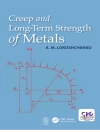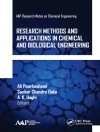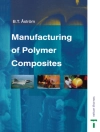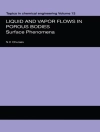This authoritative work represents a broad treatment of the field, including the basic principles of membrane reactors, a comparative study of these and conventional fixed-bed reactors or multi-tube reactors, modeling, industrial applications, and emerging applications — all based on case studies and model reactions with a stringent mathematical framework.
The significant progress made over the last few years in this inherently hot multidisciplinary field is summarized in a competent manner, such that the novice can grasp the elementary concepts, while professionals can familiarize themselves with the latest developments in the area. For the industrial practitioner, this practical book covers all important current and potential future applications.
Inhaltsverzeichnis
Preface
BASIC PROBLEMS OF CHEMICAL REACTION ENGINEERING AND POTENTIAL OF MEMBRANE REACTORS
Challenges in Chemical Reaction Engineering
Concepts of Membrane Reactors
Available Membranes
Illustration of the Selectivity Problem
Reaction Rate, Conversion, Selectivity and Yield
Distributed Dosing in Packed-Bed and Membrane Reactors
Kinetic Compatibility in Membrane Reactors
Current Status of Membrane Reactors of the Distributor Type
MODELING OF MEMBRANE REACTORS
Introduction
Momentum, Mass and Heat Balances
Transport Kinetics
Reduced Models
Solvability, Discretization Methods and Fast Solution
Implementation in FLUENT, Moo NMD, COMSOL and Pro Mo T
Conclusion
CATALYSIS AND REACTION KINETICS OF A MODEL REACTION
Introduction
The Reaction Network of the Oxidative Dehydrogenation of Ethane
Catalysts and Structure-Activity Relations
Derivation of a Kinetic Model
TRANSPORT PHENOMENA IN POROUS MEMBRANES AND MEMBRANE REACTORS
Introduction
Aspects of Discretizing Convection-Diffusion Equations
Velocity Fields in Membrane Reactors
Determination of Transport Coefficients and Validation of Models
Analysis of Convective and Diffusive Transport Phenomena in a CMR
Parametric Study of a CMR
Conclusion
PACKED-BED MEMBRANE REACTORS
Introduction
Principles and Modeling
Model-Based Analysis of a Distributed Dosing via Membranes
Experimental
Results for the Oxidative Dehydrogenation of Ethane to Ethylene
Results for the Oxidative Dehydrogenation of Propane
Summary and Conclusions
FLUIDIZED-BED MEMBRANE REACTORS
Introduction
Modeling of the Distributed Reactant Dosage in Fluidized Beds
Experimental
Conclusions
SOLID ELECTROLYTE MEMBRANE REACTORS
Introduction
Operational and Material Aspects in Solid Electrolyte Membrane Reactors
Modeling of Solid Electrolyte Membrane Reactors
Membrane Reactors Applying Ion-Conducting Materials
Conclusions
NONLINEAR DYNAMICS OF MEMBRANE REACTORS
Introduction
Limit of Chemical Equilibrium
Pattern Formation
Conclusions
COMPARISON OF DIFFERENT MEMBRANE REACTORS
General Aspects Regarding Membrane Reactors of the Distributor Type
Oxidative Dehydrogenation of Ethane in Different Types of Membrane Reactors
General Conclusion
Über den Autor
Andreas Seidel-Morgenstern received his Ph D in 1987 from the Institute of Physical Chemistry of the Academy of Sciences in Berlin. Between 1991 and 1992 he worked as a postdoctoral fellow at the University of Tennessee in Knoxville. In 1994 he finished the Habilitation at the Technical University in Berlin. He has industrial experience with Schering AG (1995) and has consulted for various companies in the areas of separation science and reaction engineering. Since 1995 he has been Professor of Chemical Process Engineering at the Otto von Guericke University in Magdeburg. He was appointed to the position of Director at the Max Planck Institute for Dynamics of Complex Technical Systems in Magdeburg in 2002 where he leads the department ‚Physical and Chemical Foundations of Process Engineering‘. Among his numerous awards, he received the Max Buchner Award of Dechema in 2000, the Otto von Guericke Research Award of the Magdeburg University in 2002 and in 2008 he received an Honoris Causa Doctorate from the Lappeenranta University in Finland. His current research interests include reaction engineering, heterogeneous catalysis, preparative chromatography and Enantioselective crystallization.












